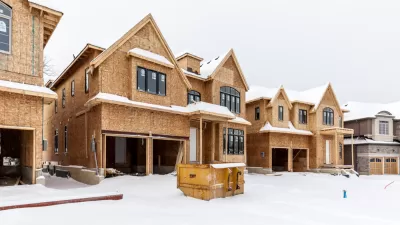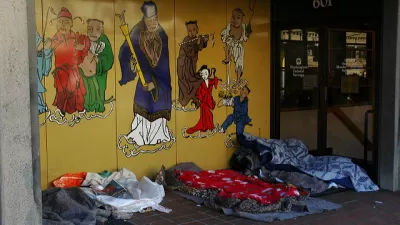A post examining common responses to the question of why the cost of housing continues to rise requires a frank discussion about the nature of Seattle's "housing shortage."

Michael Goldman asks a critical question, with relevance to other cities around the country, and eventually finds an answer that many pro-housing advocates might not like: "Why do Seattle rents continue to rise to higher and higher levels of unaffordability?"
Goldman notes a narrative that is used more and more frequently in the city to explain the lack of affordable housing: a housing shortage. "The housing shortage narrative has largely replaced the language of supply-and-demand, which has recently been criticized for being too reminiscent of trickle-down economics or too simplistic (although some still favor it)," writes Goldman.
The differences between the two lines of argument, Goldman writes, are subtle: "The essence of the shortage argument is the same as the supply-and-demand argument, though. Simply, when the production of housing outpaces the demand for housing we have a housing surplus. When housing production falls behind demand we have a housing shortage."
Thus, Goldman begins the process of debunking the housing shortage narrative, specifically the typical claim about the regulatory causes of the high cost of housing: "upon closer examination, the housing shortage between 2010 to 2015 was not the result of restrictive local regulations but restrictive global capital."
Goldman also suggests a new narrative that might actually be more tractable: out of control rents. The high cost of rent, according to Goldman, is a specific housing shortage that isn't resolved by simply building more housing. "To address the specific shortage, it’s time we started looking at specific solutions including a progressive income tax, rent stabilization, and aggressively capturing the value concentrating in urban land so it can be funneled into affordable housing."
FULL STORY: What Housing Shortage?

Planetizen Federal Action Tracker
A weekly monitor of how Trump’s orders and actions are impacting planners and planning in America.

Maui's Vacation Rental Debate Turns Ugly
Verbal attacks, misinformation campaigns and fistfights plague a high-stakes debate to convert thousands of vacation rentals into long-term housing.

San Francisco Suspends Traffic Calming Amidst Record Deaths
Citing “a challenging fiscal landscape,” the city will cease the program on the heels of 42 traffic deaths, including 24 pedestrians.

Defunct Pittsburgh Power Plant to Become Residential Tower
A decommissioned steam heat plant will be redeveloped into almost 100 affordable housing units.

Trump Prompts Restructuring of Transportation Research Board in “Unprecedented Overreach”
The TRB has eliminated more than half of its committees including those focused on climate, equity, and cities.

Amtrak Rolls Out New Orleans to Alabama “Mardi Gras” Train
The new service will operate morning and evening departures between Mobile and New Orleans.
Urban Design for Planners 1: Software Tools
This six-course series explores essential urban design concepts using open source software and equips planners with the tools they need to participate fully in the urban design process.
Planning for Universal Design
Learn the tools for implementing Universal Design in planning regulations.
Heyer Gruel & Associates PA
JM Goldson LLC
Custer County Colorado
City of Camden Redevelopment Agency
City of Astoria
Transportation Research & Education Center (TREC) at Portland State University
Jefferson Parish Government
Camden Redevelopment Agency
City of Claremont





























